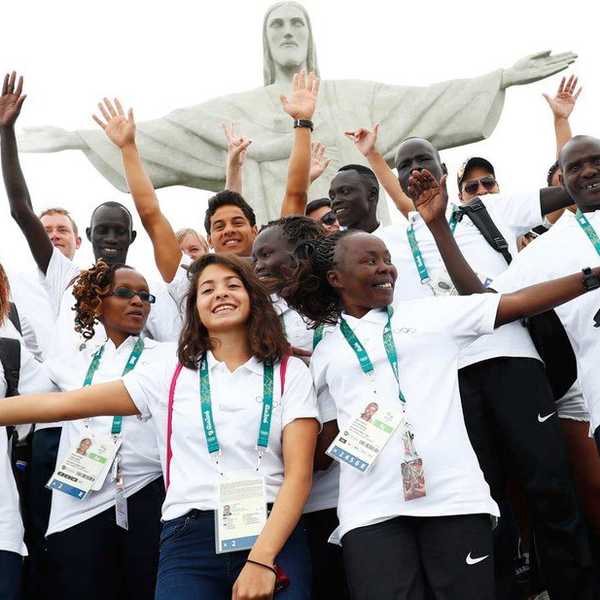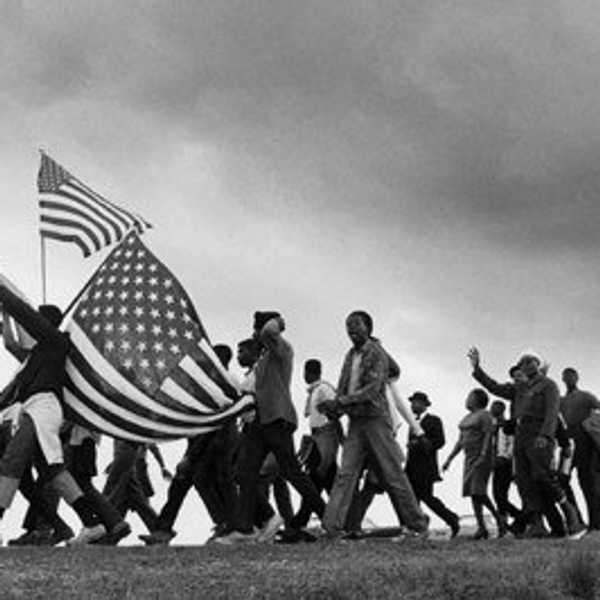In the grandiosity of the Olympic Games, those of us watching from behind a TV screen often lose sight of the context in which the games are held. Camera angles displaying the picturesque beaches and exuberant celebrations disguise the reality of civil unrest, lack of policing and safety, and absence of clean air and water in Rio.
Meanwhile, medal counts and regional broadcasting guide viewers to imbibe zealously in nationalistic pride. Beyond the gilded glamour, cutthroat competition, and occasional flashback of medal ceremony montages, there is little sense of historical significance or historical comparison present in the media narrative surrounding the 2016 Olympics.
With the games still in progress, perhaps it is understandable that viewers would rather wear red, white, and blue and glorify the best athletes America has to offer, rather than focus on the historical context of a biyearly event. Yet, for some, that is a privilege that others do not share.
The celebrations are dichotomous.
Though we champion our Black athletes when they win medals, that same admiration does not extend to the regular treatment of the Black community in the United States as a whole.
Americans cannot claim Black athletes as their own with pride while simultaneously dismissing or willfully ignoring the systemic injustices the same Black athletes face upon returning home - a reflection of the struggle of the Black community at large.
To
celebrate with nationalistic pride Black athletes but insist upon
"#AllLivesMatter" is a sham. To brag about Serena Williams but not
know (or care) about Korryn
Gaines is privilege. To humanize Black athletes but dehumanize Black people
is a reinforcement of white supremacy.
Let's be clear: this is not new. But it's worth drawing the historical comparison.
The difference in treatment of Black Olympic athletes and the average Black
person in America today is eerily similar to the same dichotomy 80 years ago in
the 1936 Olympics held in Nazi Germany and Jim Crow, segregated America.
The 1936 Olympics is commonly remembered as the time ten Black medalists stood as a foil to Adolf Hitler's hateful ideologies. In particular, Americans championed Black track and field star Jesse Owens - who earned a gold medal in three individual events and as a member of the 4x100m relay team - to be a representation of America and egalitarianism triumphing over Fascism.
But as writer of "Olympic Pride, American Prejudice" Deborah Riley Draper suggests, these Black athletes who wore "America" and "Team USA" on their backs were still not quite "Americans" yet, still did not have all the rights of Americans, and still did not have the respect of Americans, upon returning home.
At an event in his honor, Owens was told to take the service lift rather than the normal guest lift, which was reserved for whites, and President Franklin Roosevelt never congratulated Owens, nor did FDR invite Owens to the White House. Instead, Owens and the other Black athletes of the 1936 Olympics returned home to lynchings, discrimination, and segregation.
Fast forward to the 2016 Olympics in Rio and the Black athletes will be returning home to much of the same things.
Within just this past year, Blacks have been legally murdered for putting their hands in the air, for not putting their hands in the air, for wearing a hoodie, for having a toy, for selling CD's, for selling cigarettes - the list could continue at length, but you understand the message. Their killers, have hardly, if ever, been convicted. Freddie Gray, somehow, apparently severed his own spine, and the only person indicted in the Eric Garner execution was the person who filmed the police killing him - for just two examples.
Moreover, the recent DOJ report on Baltimore's Police Department (BPD), released during the same time as the Olympics, offers a scathing review of persistent discrimination.
The review asserts that "In some cases, unconstitutional stops result from supervisory officers' explicit instructions. During a ride-along with Justice Department officials, a BPD sergeant instructed a patrol officer to stop a group of young African-American males on a street corner, question them, and order them to disperse.
When the patrol officer protested that he had no valid reason to stop the group, the sergeant replied "Then make something up." The report then further concludes incidents like these are "far from anomalous."
Nearly 50 percent of all BPD's pedestrian stops from January 2010 to May 2015 were made in two Black neighborhoods that include just 11 percent of the city's population. Many of these people were stopped at least ten times, while multiple Black men were stopped more than 30 times, the report contends. Most of these, the assessment says, were without reasonable suspicion.
And while the Black athletes of today may not be returning to widespread segregation, a United States District Court recently had to order schools in Mississippi to desegregate 62 years after Brown v. Board of Education.
80 years go by and little changes. Americans - particularly white Americans - must do better. It is not wrong to cheer for Black athletes, of course; indeed, celebration is empowering. But it is incomplete to celebrate these athletes without recognizing a much broader, much more significant context.
-------------------------------------------------
The author would like to note that (1) he is white and included in the group that must work to do better and (2) it would be very possible to argue that the media narrative surrounding even Black athletes is discriminatory and different from white athletes and that Black athletes receive less than deserved celebration in the first place: see Simone Biles or Simone Manuel, e.g.





















